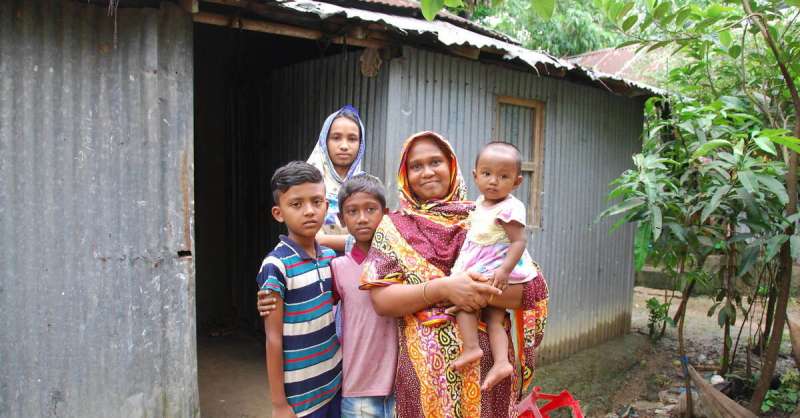Iron supplements not linked to cognitive improvements for kids

A study in rural Bangladesh has concluded that preventive iron treatment has no impact on young children's development.
Iron supplements are administered to young children worldwide to prevent anemia, in line with global guidelines.
Led by WEHI Associate Professor Sant-Rayn Pasricha, in collaboration with Dr. Jena Hamadani from the International Center for Diarrheal Diseases Research Bangladesh and Professor Beverley-Ann Biggs from the Doherty Institute, and published in the New England Journal of Medicine, the study measured the impact of iron supplements on child cognitive function, behavior and development.
Supplements show no impact on development
Iron was provided to eight-month-old children, as both iron drops and home fortification packets (multiple micronutrient powders), and neither intervention improved child development, although both improved anemia.
The study measured children's cognitive, language and motor development, as well as behavior, and growth, including height and weight, and found iron supplements had no impact on any of these areas of development.
Associate Professor Pasricha said the research could lead to major changes in global nutrition policy.
"We have been administering iron supplements to young children worldwide for decades in the belief that it had a positive impact on their development, without proper evidence it was actually beneficial," he said.
"What we have demonstrated, is that while iron supplements improved anemia in children, these interventions had no impact on growth, cognitive function, behavior or development."
"This has implications for how we treat iron deficiency and anemia in babies and young children worldwide."
Guiding future global health policy
Associate Professor Pasricha said anemia in young children has long been linked with poor health outcomes and developmental delays.
"This led to policies of universal distribution of iron interventions to children, based on the assumption that iron would reverse poor child development," he said. "Our rigorous study shows this is not the case."
The study also evaluated adverse side effects in children who took the iron supplements preventatively.
Dr. Hamadani said for some of these children the supplements may do more harm than good.
"In children taking iron supplements who did not have anemia, they may actually have had increased presentations to clinics due to episodes of diarrhea, possibly indicating iron interventions were doing more harm than good," she said.
The World Health Organization (WHO) recommends iron supplements are given to all young children in low and middle-income countries where anemia is common.
"We need to carefully reconsider the use of these interventions based on this study," Associate Professor Pasricha said.
"It also puts into question the need to screen otherwise healthy, asymptomatic children for anemia."
Professor Biggs said she expected the findings to inform future global health policy guidelines about the use of iron interventions in young children.
"This study may also help inform guidelines for the treatment and prevention of anemia in Indigenous populations in Australia," she said.
More information: Sant-Rayn Pasricha et al, Benefits and Risks of Iron Interventions in Infants in Rural Bangladesh, New England Journal of Medicine (2021). DOI: 10.1056/NEJMoa2034187




















